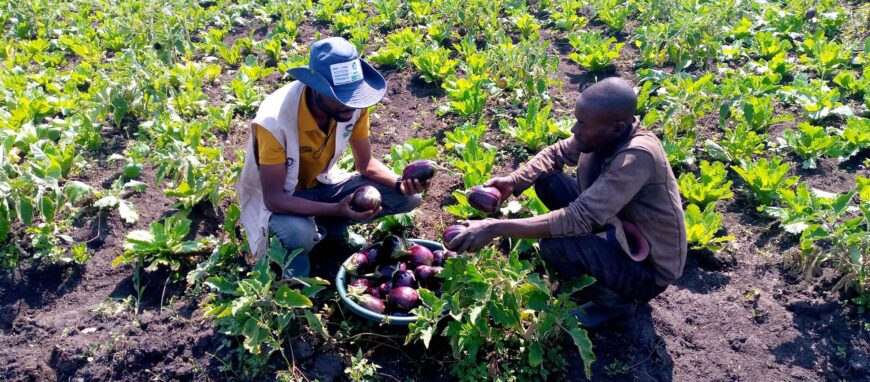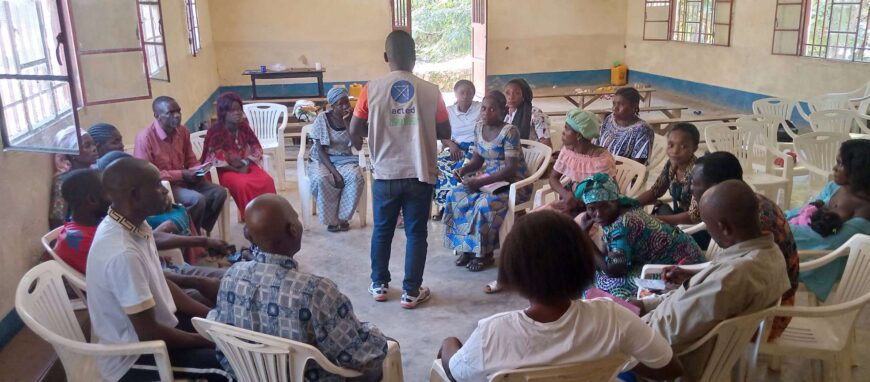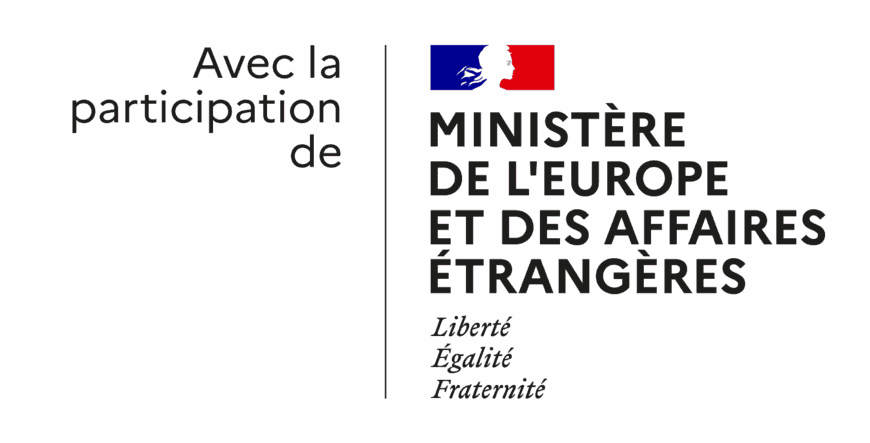The Democratic Republic of Congo is one of the countries with the highest number of people suffering from acute food insecurity, with more than 25.6 million people affected between July and October 2024. Tanganyika province is home to 1,857,391 people in a food crisis or emergency (IPC3+), and accounts for a large proportion of the country's humanitarian needs, arising from both structural and cyclical causes.

Tanganyika is also affected by fluctuating periods between heavy rains and drought, the frequency and severity of which are accentuated by climate disruption and impact agricultural seasons. Rising water levels in Lake Tanganyika, due to severe weather conditions, have exacerbated flooding, causing major damage to local infrastructure.
The territory of Kalemie is the second hardest hit by acute food insecurity in the province, affecting 419,527 people.
Food insecurity is exacerbated by landlocked conditions, lack of agricultural infrastructure, climatic hazards, crop disease and precarious production systems, often with little technical support. The socio-economic context also has an impact on the purchasing power of a population highly exposed to food insecurity, made up mainly of rural households as well as the poor and very poor in urban and peri-urban areas.
There is also a high number of people in need of nutrition (around 400,000). The severity of this need is classified as alert to severe according to the September 2024 IPC analysis of acute malnutrition. The main factors contributing to malnutrition are poor dietary practices, acute food insecurity, disease, poor access to healthcare, and limited access to drinking water, hygiene and sanitation.

Improving nutrition and livelihoods through an integrated “WASH in Nut” and food security approach.
This 13-month project, from September 2023 to September 2024, is supported by the Comité interministériel d’aide alimentaire (CIAA). It aims to strengthen the resilience of the Moni and Kasanga Mtoa groups in Tanganyika Province, by improving the processing and marketing channels for agricultural products. With a holistic and integrated approach, the aim was to improve nutrition through an integrated WASH and food security “WASH in Nut” approach in health centers.
Through this project, local people have strengthened their local economic activities, diversified their diets and acquired knowledge and best practices in terms of nutrition, by receiving seeds and agricultural tools, and setting up vegetable gardens and farmer field schools (FFS). In addition, income-generating activities (IGA) have helped to revitalize the local economy. Lastly, access to water, sanitation and hygiene (WASH) has been improved through the construction and rehabilitation of sanitary infrastructures in seven health centers, as well as the distribution of WASH kits.
These activities reached a total of 32,378 beneficiaries, with a particular focus on food assistance, agricultural revival and improved management of cases of malnutrition.
However, humanitarian needs in this region remain high. Faced with this situation, Acted, in partnership with Médecins du Monde (MdM), has launched a new project starting in October 2024 in the health zones of Nyunzu, Nyemba and Kalemie. The project aims to boost food security for the most vulnerable households, rehabilitate and build health infrastructures, and screen and treat cases of severe acute malnutrition, particularly among pregnant and breast-feeding women.
